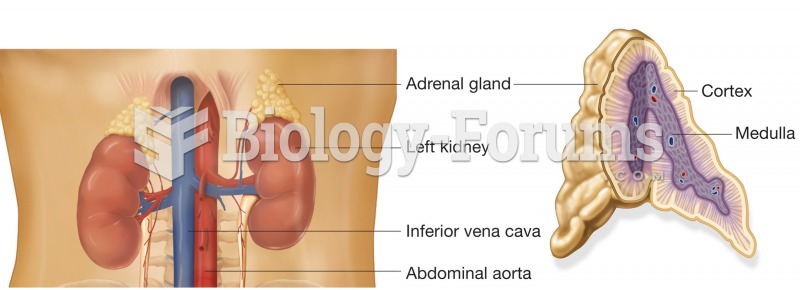|
|
|
Calcitonin is a naturally occurring hormone. In women who are at least 5 years beyond menopause, it slows bone loss and increases spinal bone density.
A serious new warning has been established for pregnant women against taking ACE inhibitors during pregnancy. In the study, the risk of major birth defects in children whose mothers took ACE inhibitors during the first trimester was nearly three times higher than in children whose mothers didn't take ACE inhibitors. Physicians can prescribe alternative medications for pregnant women who have symptoms of high blood pressure.
The U.S. Preventive Services Task Force recommends that all women age 65 years of age or older should be screened with bone densitometry.
Atropine, along with scopolamine and hyoscyamine, is found in the Datura stramonium plant, which gives hallucinogenic effects and is also known as locoweed.
To combat osteoporosis, changes in lifestyle and diet are recommended. At-risk patients should include 1,200 to 1,500 mg of calcium daily either via dietary means or with supplements.
 The adrenal glands. These glands sit on top of each kidney. Each adrenal is subdivided into an outer
The adrenal glands. These glands sit on top of each kidney. Each adrenal is subdivided into an outer
 The major structures of the limbic system: amygdala, hippocampus, cingulate cortex, fornix, septum, ...
The major structures of the limbic system: amygdala, hippocampus, cingulate cortex, fornix, septum, ...





